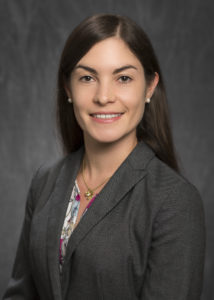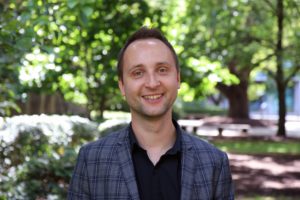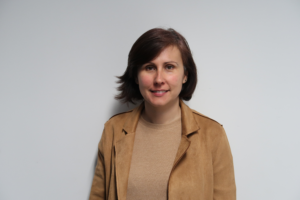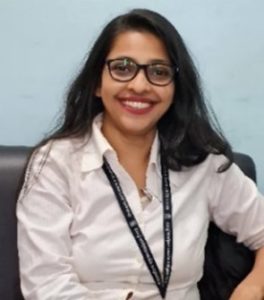We are delighted to present the 2022 edition of the RSC Advances Emerging Investigators Series! Following the success of our inaugural 2021 edition, we are excited to continue highlighting the chemistry research being conducted by some of the leading investigators in our community.
This year’s Series Editors were Professor Shirley Nakagaki (Federal University of Paraná, Brazil) and Dr Fabienne Dumoulin (Acıbadem Mehmet Ali Aydınlar Universit, Türkiye. The 10 articles featured come from various countries and continents, delving into molecular and solid-state chemistry with diverse applications, primarily in the areas of green and environmental chemistry, as well as biological and bioinorganic chemistry. Additionally, we have included papers that propose theoretical calculations as solutions to chemistry problems. You can read all about the contributions in this accompanying Editorial, prepared by Shirley.
Please see below the biographies of some of the brilliant authors who have been published in the 2022 collection:
Ashutosh Kumar Mishra
Dr Ashutosh Kumar Mishra was born in Gorakhpur and obtained his master’s degree from Gorakhpur university. He later moved to IIT-Kanpur for his doctoral degree where he worked under the supervision of Prof Sandeep Verma on scalable structural complexities in metal-nucleobase interactions. Working as postdoctoral scholar with Prof Frederick D Lewis at Northwestern University, USA, he was involved in investigating the dynamics and mechanism of photoinduced charge transport in DNA. Ashutosh started his independent research career at IIT-Hyderabad India where he is currently working as assistant professor. His current research interest focuses on understanding and exploring bio-molecular systems through small chemical modifications, especially synthetic peptide motifs and flavin based dinucleotide systems with potential biomedical applications and for next generation biomimetic systems.
Noémie Elgrishi
Noémie Elgrishi is an assistant professor at Louisiana State University. A native of France, Noémie worked in the labs of Jonathan Nitschke (University of Cambridge) and Daniel Nocera (MIT, now Harvard University) during her Master’s degree (Sorbonne University, formerly University Pierre and Marie Curie – Paris 6). After obtaining a PhD from Sorbonne University working with Marc Fontecave (Collège de France), during which she was named a 2012 Scifinder Future Leader, she was a Postdoctoral Researcher under the mentorship of Jillian Dempsey (UNC-Chapel Hill) for 2 years. Since starting at LSU in 2017, Noémie’s group has developed a fundamental-science-first approach to interrogate environmentally relevant problems. Research centers on the intersection of electrochemistry and supramolecular chemistry to answer key questions related to water and energy challenges. Noémie Elgrishi received a CAREER award from the National Science Foundation in 2021 and will be an editorial broad member for the Journal of Coordination Chemistry starting in 2023.
Lars Goerigk
Lars Goerigk is an Associate Professor at the School of Chemistry, The University of Melbourne, Australia. In 2011, he obtained his PhD in the group of Prof. Stefan Grimme, Münster in Germany, and then relocated to The University of Sydney to work with Prof. Jeffrey Reimers before joining his present institution in 2014. His area of expertise is Theoretical and Computational Quantum Chemistry with a focus on Density Functional Theory for ground and excited states. A/Prof. Goerigk is a former Discovery Early Career Researcher Award Fellow (Australian Research Council), a recipient of the 2017 Physical Chemistry Division Lectureship (Royal Australian Chemical Institute) and an awardee of the 2019 Le Fèvre (Australian Academy of Science) and 2020 Rennie Memorial medals (Royal Australian Chemical Institute). Recently, he won the 2022 Pople Medal (Asia-Pacific Association of Theoretical & Computational Chemists), the highest award for a theoretical and computational chemist under the age of 45 in the Asia Pacific.
Julio C. Pastre
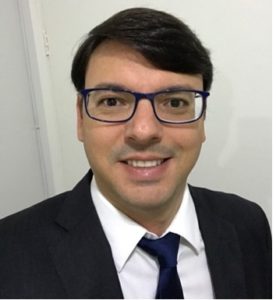
Julio C. Pastre obtained his PhD in 2009 under the guidance of Professor Carlos Roque D. Correia at the University of Campinas – UNICAMP. He then worked as a research scientist at Rhodia-Solvay before moving back to UNICAMP for postdoctoral studies with Professor Ronaldo A. Pilli. In 2012, he joined the group of Professor Steven V. Ley at the University of Cambridge. Two years later, Julio established his independent research group at UNICAMP and recently became an Associate Professor. In 2019, he was recognized as an ‘Emerging Investigator’ by Reaction Chemistry & Engineering and as a ‘New Talent from the Americas’ by RSC Medicinal Chemistry. Julio was chosen by the editorial boards of Synthesis, Synlett, and Synfacts as one of their ‘Thieme Chemistry Journals Awardees’ for 2023. His research interest focuses on the development of new synthetic methods in batch under microwave irradiation and under continuous flow conditions for the synthesis of platform molecules, new chemicals and APIs.
Sónia P.M. Ventura
Recovery of bacterioruberin and proteins using aqueous solutions of surface-active compounds
Sónia P.M. Ventura is an Associate Professor at the Chemistry Department of University of Aveiro and coordinator of group 4 (Biorefinery, Recycling and Bio-based Materials) of the Aveiro Institute of Materials (CICECO). In 2021, Prof Sónia Ventura was invited to be part of the coordination members of European Federation of Biotechnology (EFB) and since the end of 2022, Prof Ventura is member of the Steering Board of European Algae Biomass Association (EABA).
Prof Ventura is a well-recognized researcher working on the use of alternative solvents (e.g. ionic liquids, eutectic solvents and more recently bio-solvents) and engineering technologies aiming to develop the concepts of Biorefinery and Circular Economy by following the guidelines of Green Chemistry. In the last 10 years, Prof Ventura is deeply devoted to the study of strategies to valorize marine raw materials and residues derived from several industrial sectors, these including fishery and agri-food industries.
Susmita De
Dr Susmita De obtained her Ph. D. in 2010 from University of Hyderabad under the guidance of Prof Eluvathingal D. Jemmis. She has gained research experience in various area of theoretical chemistry by working with Prof Gernot Frenking at the Department of Chemistry, Philipps-University Marburg, Germany, Prof. Keiji Morokuma at the Fukui Institute for Fundamental Chemistry, Kyoto University, Japan and Prof Martin Zacharias at the Department of Physics, Technical University Munich, Germany. She is the recipient of Fast Track early career research award, INSPIRE Faculty award, Core research grant from Government of India and EMBO visiting scientist fellowship. Her current research focus is on the detailed molecular-level understanding of structure and mechanism of complex molecular, biomolecular and materials systems by molecular dynamics simulations and quantum mechanical/molecular mechanical methods. She applies the knowledge of chemical bonding to predict the properties and reactivities of complex systems. Her foundation in chemistry had helped her to translate the molecular level knowledge to the areas of Biology and Material science, which can establish a synergy between theory and experiment to realise fruitful prediction of theory-driven experiments and synthesis.
Kelly M. Schultz
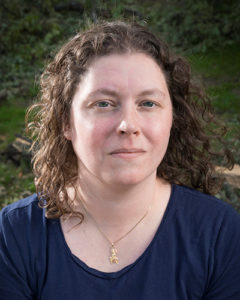
Gelation phase diagrams of colloidal rod systems measured over a large composition space
Dr Kelly M. Schultz is an Associate Professor in the Department of Chemical and Biomolecular Engineering at Lehigh University. She obtained her B.S. in Chemical Engineering from Northeastern University in 2006 and a Ph.D. in Chemical Engineering with Professor Eric Furst from the University of Delaware in 2011 as a National Science Foundation graduate research fellow. While at Delaware, she was invited to speak in the American Chemical Society Excellence in Graduate Polymers Research Symposium and was selected as the Fraser and Shirley Russell Teaching Fellow. Following her PhD, she was a Howard Hughes Medical Institute postdoctoral research associate at the University of Colorado at Boulder working in the laboratory of Professor Kristi Anseth. As a postdoc, she was invited to participate in the Distinguished Young Scholars Summer Seminar Series at the University of Washington. She began her position as Assistant Professor at Lehigh University in 2013, was named a P.C. Rossin Assistant Professor from 2016 – 2018 and was promoted to Associate Professor in 2019. Dr. Schultz was named one of TA Instruments Distinguished Young Rheologists (2014), awarded a NSF CAREER award (2018), the Lehigh University Libsch Early Career Research Award (2019), the P.C. Rossin College of Engineering and Applied Science Excellence in Research Scholarship & Leadership (2020), a National Institutes of Health – National Institute of General Medical Sciences Maximizing Investigators’ Research Award (MIRA R35, 2022) and named the Pirkey Centennial Lecturer by the McKetta Department of Chemical Engineering at the University of Texas at Austin (2022). Dr Schultz and her research group study emerging gel materials developed for applications from consumer products to materials that can enhance and restart wound healing. Of particular interest is the development of bulk and microrheological techniques that measure how 3D encapsulated human mesenchymal stem cells degrade and remodel synthetic hydrogel scaffolds during motility.
Thank you so much to the Series Editors, Associate Editors and to all our reviewers at RSC Advances for their ongoing support and contribution, helping us to bring together such a fantastic collection of articles.
Looking forward: Emerging Investigator Series 2023!
We are pleased to announce that Shirley and Fabienne will continue on as the Series Editors for the 2023 Emerging Investigator series! We can’t wait to see what the next early career investigators have been working on in Chemistry.
Selection for the Emerging Investigators series comes in part from the recommendations of our Editorial Board, as well as our Associate Editors. Authors can also self-nominate for participation and review by our Associate Editors. Articles can be submitted to the series at any time and will be accepted and published throughout the year.
If you would like to be involved in our upcoming series, please look at our webpage here for more information or submit now!
For any questions do not hesitate to contact us at advances-rsc@rsc.org
 Submit to RSC Advances today! Check out our author guidelines for information on our article types or find out more about the advantages of publishing in a Royal Society of Chemistry journal.
Submit to RSC Advances today! Check out our author guidelines for information on our article types or find out more about the advantages of publishing in a Royal Society of Chemistry journal.
Keep up to date with our latest Popular Advances, Reviews, Collections & more by following us on Twitter. You can also keep informed by signing up to our E-Alerts.



